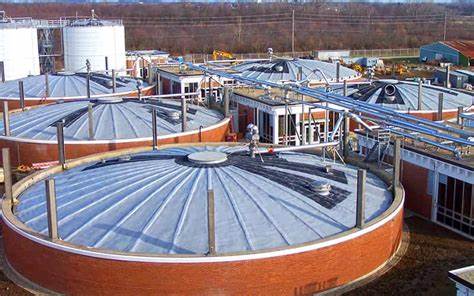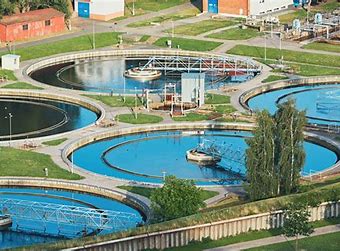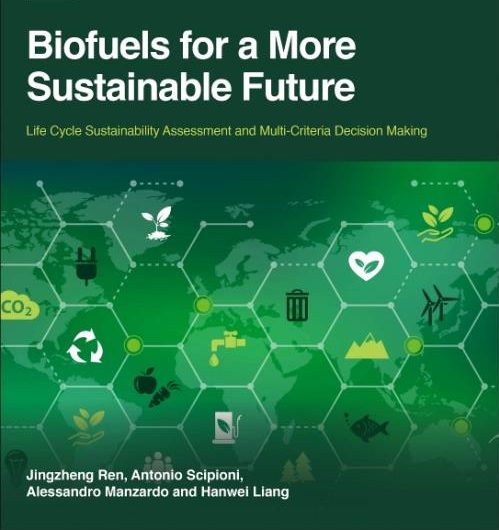Introduction Anaerobic digestion for wastewater treatment is a process that utilizes microorganisms to break down organic matter in the absence of oxygen. This natural process not only effectively treats wastewater but also produces renewable energy in the form of biogas. Wastewater treatment is of utmost importance for public health and environmental preservation. Historical Background Anaerobic digestion has been used since ancient times to treat organic waste. Over time, it has evolved to meet the needs of modern society, particularly in wastewater treatment. Today, anaerobic digestion is considered a sustainable and efficient method for managing wastewater, offering numerous advantages over traditional…
Author: jenks2026
Introduction Ultraviolet (UV) disinfection is a crucial process in wastewater treatment that aims to remove harmful pathogens and contaminants. This article explores the relevance and importance of UV disinfection in wastewater treatment, emphasizing its efficiency and effectiveness as a sustainable solution. By understanding the mechanisms and applications of UV disinfection, readers can grasp the significance of this technology in creating a cleaner and safer environment. Historical Background Over time, wastewater treatment has evolved to protect public health and the environment. Disinfection methods have undergone various transformations, transitioning from chemical-based approaches to physical processes. The emergence of UV disinfection has revolutionized…
Introduction In this article, we will explore the relevance and importance of ozone treatment in wastewater management. With the increasing global population and industrial activities, effective wastewater treatment is crucial for maintaining a clean and sustainable environment. Ozone treatment has emerged as a promising method in this field, offering numerous advantages over traditional treatment methods. Let’s delve into the historical background and key concepts of ozone treatment to understand its significance better. Historical Background Wastewater treatment has a long history dating back to ancient civilizations. However, it wasn’t until the 19th century that significant advancements were made in this field.…
Introduction Electrocoagulation is a promising technology in wastewater treatment. This article provides an overview of electrocoagulation and its relevance in addressing wastewater treatment challenges, with a focus on improving environmental sustainability. Historical Background Electrocoagulation in wastewater treatment dates back to the early 20th century. Significant advancements have been made in this field, recognizing electrocoagulation as an effective treatment method. Key Concepts and Definitions Electrocoagulation involves using an electrical current to generate coagulants that remove contaminants from wastewater. Coagulants, electrodes, and electrochemical reactions are essential in the process. Main Discussion Points Mechanism of Electrocoagulation in Wastewater Treatment Electrocoagulation involves a series…
Environmental Benefits of Wastewater Treatment Introduction Wastewater treatment is a crucial process that plays a vital role in safeguarding the environment and preserving our natural resources. By effectively removing contaminants from wastewater, this process ensures that water bodies remain clean and healthy, leading to a multitude of environmental benefits. This comprehensive article explores the historical background, key concepts, and main discussion points related to wastewater treatment, as well as provides case studies, current trends, challenges, and future outlooks. Understanding the significance of wastewater treatment is essential for promoting sustainable practices and protecting our planet. Historical Background Throughout history, wastewater treatment…
Introduction Wastewater treatment plays a crucial role in ensuring public health and the protection of the environment. In this comprehensive article, we will delve into the historical background, key concepts and definitions, main discussion points, case studies, current trends, challenges, future outlook, and the importance of wastewater treatment for public health and well-being. Historical Background Over time, the evolution of wastewater treatment practices has been instrumental in mitigating the adverse impacts of inadequate or improper wastewater treatment. Initially, the lack of proper treatment led to contamination of water sources, resulting in the spread of diseases and environmental degradation. However, advancements…
Economic Advantages of Effective Wastewater Treatment Introduction The topic of wastewater treatment is of utmost importance in today’s world as the global population continues to grow and water scarcity becomes a pressing issue. Finding cost-effective and sustainable ways to manage wastewater is crucial. This article aims to explore the economic advantages of wastewater treatment and the reasons why further exploration of this topic is essential. Historical Background Wastewater treatment has evolved over centuries. In ancient civilizations, simple methods like land filtration or discharge into nearby water bodies were used. However, as societies grew larger and industrialization took place, the need…
Wastewater Treatment: A Guide to Processes and Advancements Introduction Wastewater treatment is essential for maintaining environmental health and cleanliness. This article provides an overview of the wastewater treatment process, highlighting its relevance and importance. By exploring the significance of this topic, readers will gain a deeper understanding of the critical role wastewater treatment plays in preserving ecosystems. Historical Background Wastewater treatment has evolved significantly over the years. Early methods of wastewater disposal led to significant water pollution. However, advancements in technology and awareness have revolutionized wastewater treatment systems, improving the way we manage and treat wastewater. Key Concepts and Definitions…
Biofuels’ Role in Sustainable Development Introduction The role of biofuels in sustainable development is of significant importance in today’s world. As efforts to reduce dependence on fossil fuels and mitigate the effects of climate change continue, biofuels have emerged as a viable alternative. This article explores the relevance and importance of biofuels in sustainable development and the potential impact of a Thought Leader’s analysis in shaping future policies. Historical Background Biofuels have been used for centuries, with humans recognizing the energy potential of biomass. However, it is in recent decades that biofuels have gained prominence as a renewable energy source.…
The Biofuels Renaissance: A Comprehensive Exploration Introduction The Biofuels Renaissance is a comprehensive exploration of the importance and relevance of biofuels in today’s world. This article delves into the historical background, key concepts, main discussion points, case studies, current trends, challenges, controversies, future outlook, and references related to the biofuels industry. Historical Background Biofuels have a rich history and have played a significant role in meeting energy demands while reducing greenhouse gas emissions. From early forms of biofuels like firewood and animal dung to the development of ethanol and biodiesel, the biofuels industry has come a long way. Previous efforts…
A Sustainable Future Powered by Biofuels: Vision for the Future Introduction In today’s world, the pursuit of sustainability has become more important than ever. As industries continue to grow and economies expand, there is a pressing need to find alternative energy sources that can meet our needs without compromising the health of our planet. This article aims to provide an overview of the significance of biofuels in achieving sustainability goals and emphasizes the importance of a visionary perspective in shaping the future of biofuel adoption. Historical Background The evolution of biofuels as an alternative energy source dates back to the…
Shaping the Energy Landscape: Insights from Biofuel Innovators Introduction Biofuels have gained significant attention as a crucial topic in the context of energy sustainability and climate change. As the world grapples with the need for cleaner and renewable energy sources, biofuels have emerged as a potential solution. This article aims to explore the historical background, key concepts, main discussion points, case studies, current trends, challenges, controversies, future outlook, and the significance of biofuel innovation in shaping the energy landscape. Historical Background The history of biofuels dates back several decades, starting with the introduction of ethanol as an alternative fuel during…
The Future of Biofuel Leadership: Nurturing Tomorrow’s Industry Innovators Introduction The topic of nurturing tomorrow’s biofuel leaders holds significant relevance and importance in today’s world. As the demand for renewable energy sources continues to rise, the development of biofuel leaders becomes crucial in driving innovation and sustainability. Thought leaders play a pivotal role in shaping the future of biofuels, and their responsibility cannot be understated. Historical Background The biofuel industry has witnessed substantial progress since its inception. From the first experiments with vegetable oils as fuel in the late 1800s to the modern-day advancements in biofuel technology, the industry has…
The Biofuel Revolution: Lessons from Trailblazing Leaders Introduction The Biofuel Revolution explores the history, development, and future of biofuel technology. As the world seeks sustainable and renewable energy sources, biofuels have emerged as a promising alternative to traditional fossil fuels. This article delves into the relevance and importance of understanding the lessons learned from trailblazing leaders in the biofuel industry. Historical Background Biofuels have a rich history dating back centuries. Biomass, such as wood and animal fat, was commonly used for heating and cooking in ancient civilizations. However, it was not until the 19th century that the modern concept of…
Sustainable Energy Transition: A Comprehensive Blueprint for a Sustainable Future Introduction In today’s rapidly changing world, the transition to sustainable energy has become an urgent and critical topic of discussion. The need to shift from traditional energy sources, which contribute to climate change and environmental degradation, to more sustainable alternatives has never been more paramount. This article aims to provide a thorough and comprehensive overview of sustainable energy transition and the significant role that thought leaders play in driving this crucial change. Historical Background To fully comprehend the significance of sustainable energy transition, it is essential to examine the historical…
Introduction: As the world grapples with the urgent need to address climate change, the decarbonization of transportation has emerged as a crucial solution. This article aims to explore the concept of decarbonizing transportation using biofuels and its significance in this field. Historical Background: Biofuels have a rich history in transportation, with early experiments dating back to the 19th century. Notable milestones include the development of ethanol as a fuel additive in the 1970s and the widespread adoption of biodiesel in the early 2000s. Over the years, perspectives on decarbonizing transportation through biofuels have evolved, recognizing the potential of these alternative…
Introduction Biofuel research plays a crucial role in driving innovation and progress towards a greener world. This article explores the historical background, key concepts, and main discussion points related to biofuel research and its significance in addressing environmental concerns. Historical Background Biofuel research has a rich history of addressing environmental concerns and promoting sustainability. It dates back to the early 19th century when researchers started exploring alternative sources of energy. Over the years, milestones, breakthroughs, and developments have shaped the field, leading to advancements in biofuel production technologies and sustainable practices. Key Concepts and Definitions Biofuels are derived from renewable…
Biofuel Sustainability in Agriculture: Rethinking the Future Introduction The importance of biofuel sustainability in the context of agriculture cannot be overstated. As the world faces increasing environmental challenges and the need to transition towards renewable energy sources, biofuels have emerged as a promising alternative to fossil fuels. However, the production of biofuels is not without its own set of challenges and controversies. This article aims to explore the relevance of rethinking agriculture for biofuel sustainability and why this topic is both significant and interesting. Historical Background The evolution of biofuel production has had a profound impact on agriculture throughout history.…
Introduction The article explores the relationship between biofuels and global politics. It aims to provide insights into the historical background, key concepts, and main discussion points surrounding this topic. By understanding the influence of influential leaders and the geopolitical implications of biofuels, we can better comprehend the future of renewable energy sources. Historical Background Biofuels have a long history intertwined with geopolitics. Initially used as a replacement for coal and oil during the Industrial Revolution in the 19th century, biofuels gained significant attention in the 21st century due to concerns over climate change and energy security. This led to the…
Scaling Up Biofuel Production: Driving Renewable Energy and Sustainable Development Introduction Biofuels have emerged as a promising solution in the quest for renewable energy sources and sustainable development. As the world grapples with the challenges posed by climate change and fossil fuel dependence, the scaling up of biofuel production holds immense potential in reducing greenhouse gas emissions and promoting a cleaner energy future. Historical Background The history of biofuel production can be traced back to the early use of vegetable oils and ethanol in engines. Over the years, advancements in technology and increasing concerns over environmental sustainability have sparked a…





















